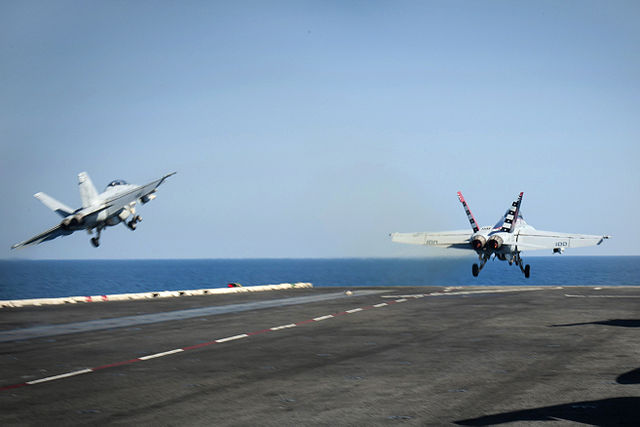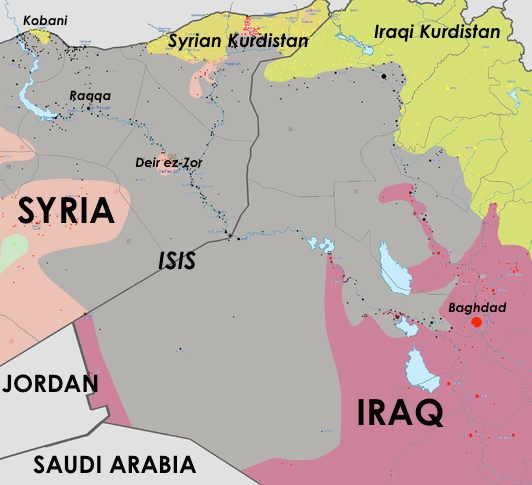The following was originally published in The Globalist.
On March 3, Israeli Prime Minister Benjamin Netanyahu addressed a joint session of the U.S. Congress to speak on what he believes to be the threat of Iran’s alleged nuclear weapons program. It is a theme he has hit often in his career, going back at least as far as the early 1990s.
His concern about Iran – and accompanying determination that Israel and the United States should strike preemptively – was only put on hold briefly around 2002 and early 2003, when he turned his attention instead to Iraq.
Missing the mark
In September 2002, ahead of the U.S. Congress’s October 2002 authorization for the use of military force in Iraq, the then-former Prime Minister offered testimony to members of the U.S. House and Senate at a hearing on Iraq’s purported nuclear weapons program capabilities.

Benjamin Netanyahu testifying to Congress on Iraq in September 2002.
In addition to providing an extremely incorrect account of the program itself, as it turns out, Mr. Netanyahu’s forecasts of the implications of the war he was calling upon the United States to wage were also badly misguided.
In his own words, transcribed from C-SPAN clips, here is why Mr. Netanyahu believed the United States should invade Iraq back in 2002 and what would happen as a result:
And today the United States must destroy the same regime, because a nuclear-armed Saddam will put the security of our entire world at risk. And make no mistake about it: if and when Saddam has nuclear weapons, the terror network will have nuclear weapons.
Two decades ago, it was possible to thwart Saddam’s nuclear ambitions by bombing a single installation. Today, nothing less than dismantling his regime will do…
The first victory in Afghanistan makes the second victory in Iraq that much easier. The second victory in Iraq will make the third victory that much easier too, but it may change the nature of achieving that victory. It may be possible to have implosions taking place – I don’t guarantee it, Mr. Tierney, but I think it makes it more likely and therefore I think the choice of Iraq is a good choice. It’s the right choice.”
As it turned out, the conflict in Iraq – a war of choice as he himself characterized it – was not easy. And the only regional effect it had was to increase transnational religious terrorism and provide opportunities to boost the stature, influence, and military strength of Iran and its proxies. It also likely hardened Iranian interest in nuclear deterrence.
The 2003 Iraq War was bad for Israel’s long-term security. A war with Iran would be far worse. The Israeli Prime Minister has been very loud on military affairs in the Middle East, but he has also been very wrong more often than not.
The United States government would be wise to disregard his counsel on Iran now, for the sake of all countries involved – including Israel.





